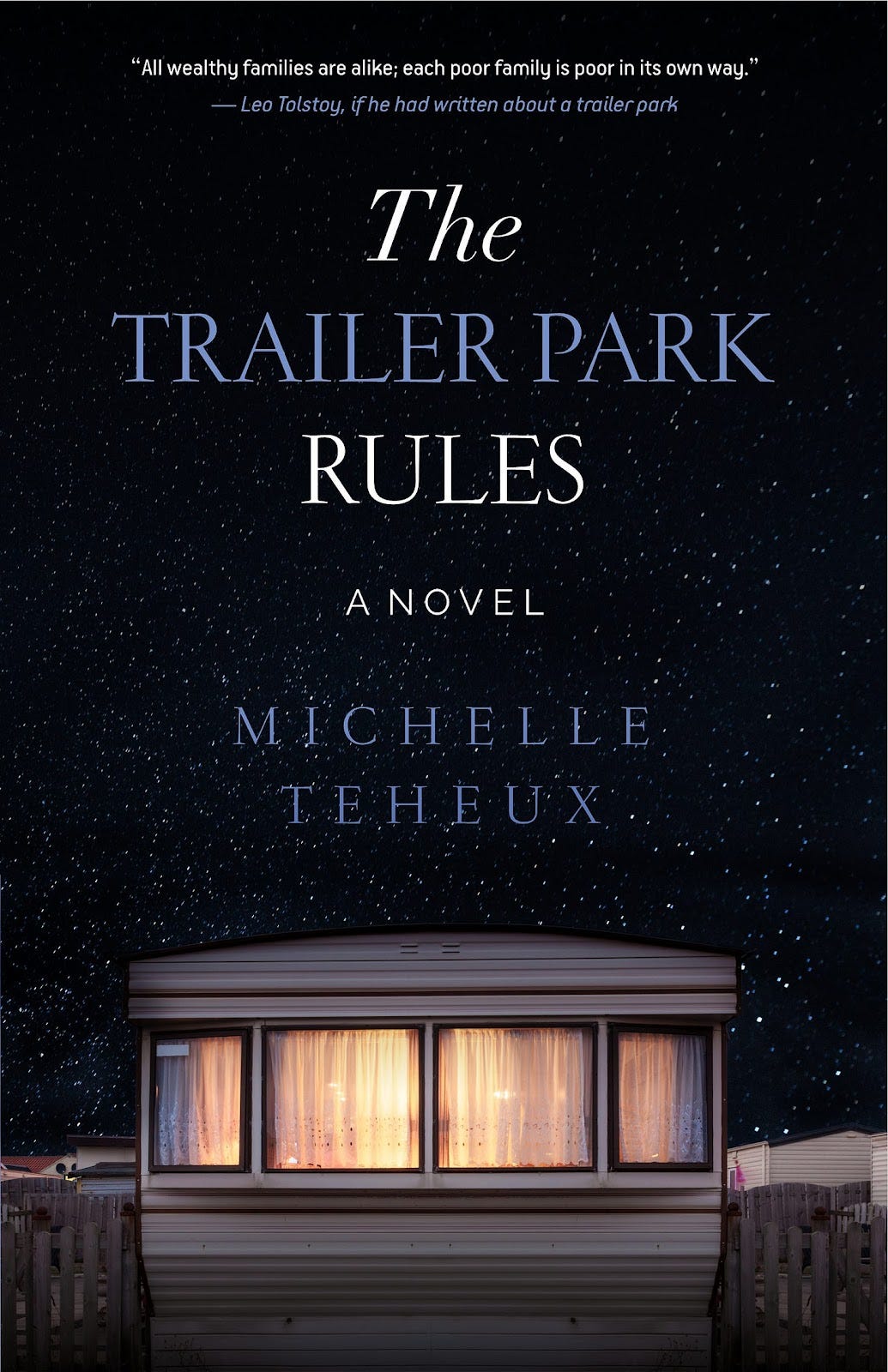Our Peasant Future Awaits (This Week’s Inequality Roundup, June 20, 2025)
Each week, Untrickled curates essential stories on inequality in America. This edition explores the existential danger income inequality poses to our world.
If I drew a Venn diagram of subjects that intersect with income inequality, I’d have an awful lot of other circles. Some of them would be obvious, like politics and economics.
But you’d also find subjects like education, student debt, racism, sexism, frugality, finance, the motherhood penalty, housing, capital gains versus wage income treatment and a whole lot more. What I do each week is share all the pieces that I think add to the income inequality puzzle.
There are few subjects more important
I believe if we do not reduce income inequality soon, there’s no hope for democracy or indeed for the survival of the United States as we know it.
Powerful forces seek to turn us into a handful of very powerful, wealthy people and lots of powerless peasants. The power differential is only growing, and there’s not much time left to turn things around. Please consider following some of these Substacks — and if possible, consider become a paying subscriber to at least one of them.
I curate this weekly roundup of memes and analysis every Friday. Subscribe now and never miss another roundup. In addition to the roundup, I also post original work on this subject every Tuesday and Thursday. Every Saturday, look for my new feature, Poverty and Privilege. As always, if you find a new Substack you love, subscribe now!
Shared by
They Were Never Going to Let You Retire
Greedbane
Pensions were never a perk. They were a hard-earned contract: work for decades, and retire with dignity. Every overtime shift, every late-night emergency, every burned-out knee on the job site contributed to a promise—a defined benefit, not a roll of the dice.
At their peak in the 1970s, 62% of private-sector workers had pensions. Today? Just 13%. Public workers—teachers, firefighters, city staff—are among the last holding the line. And Wall Street wants that line erased.
Modern Conveniences, Selectively Declined
Michelle Teheux, Untrickled
You cannot frugal yourself out of poverty
I will scream that message forever. And it’s always worth realizing that everything you do yourself just means you’re spending your time instead of your money.
But also, no matter how much time or money you do or do not have, it’s a very good idea to make sure you’re spending both in a way that aligns with your values and preferences. Don’t just automatically do what everyone else is doing.
The Most Regressive Bill in, Well, History
Robert Reich
The giant Trump Republican bill now before the Senate — Trump’s so-called “One Big Beautiful Bill” — cuts taxes for high earners and reduces benefits for the poor and working class.
This would make it more regressive — harming low-income Americans while benefiting high-income Americans — than any major tax or entitlement law in many decades, if not in history, according to new estimates by the Congressional Budget Office.
Why Reading Still Matters, Even If It Doesn’t Make You Rich
Michelle Teheux, Untrickled
Weren’t we all told as kids that knowledge was power? That the more we read, the more successful we would be?
It’s not true, of course. The best-read people I know are generally the least well-off, and I count myself in this group.
But I still think reading and writing are some of the most important things anybody can do. Not because they lead to money, but because they help us understand each other.
The DNC Is Still Not Listening to the People
Time for the Crones to Rise
The leaders of the party I once believed in has now become as corrupted by their elite, wealthy donors as the republican party. You no longer listen to what the working-class people need and want you to champion. In fact, you malign those few elected in your own party and independents who speak out against the influence of those elite, wealthy donors who want you to continue down the path of benefits going to them.
Why Is Google Still in One Piece? The Terminating a Monopoly Problem
Matt Stoller, Big
For decades, enforcers refrained from bringing monopolization cases because of a perception that bold cases are not winnable. Now, we are seeing wins all over the place because enforcers and plaintiffs had the audacity to try. The same is true for remedies. The law is actually quite expansive and permissive when it comes to fashioning big and bold structural remedies. Sometimes you just have to ask.
Moreover, we are not in the 1990s, today and everyone can see that dominant firms are dangerous. It’s only a matter of time before we make the obvious conclusion that courts must, if they find violations of monopolization law, oversee a termination of said monopoly. If they don’t, well, then we’ll have a few big firms, and nothing but a smoking crater where the economy used to be.
Why Georgists use the 🔰 mark
Lars Doucet, Progress and Poverty
What were those material conditions that first caused our movement to spring to life? And what happened in the century and a half that followed? To briefly summarize, it was the familiar paradox of Progress and Poverty. How can you have so much wealth, abundance, and material progress, and yet still have grinding poverty?
Yes – Tariffs Have Increased Prices and Inflation in the U.S.
Nominal News
Tariffs increase the cost of a good. A firm can choose to pass this cost in its entirety to the customer (this is called full pass through) or partially, by increasing the price. Moreover, since firms also want to make profits, how they determine their profit margin is also important. Firms can either make a constant dollar profit (e.g. a firm makes $2 per item sold) or it can make a percentage of cost profit (e.g. a firm marks up a good by 10% – the higher the cost, the larger the profit in dollar terms).
Don’t miss my current special series, Poverty and Privilege, which comes out every Saturday:
Part 1, Unlikely Allies in an Unequal America
Part 3, One Family’s Fall From the Middle Class
About Michelle Teheux
I’m a writer in central Illinois. If you like my work, subscribe to me here and on Medium. I also have a new Substack aimed at authors who want to self-publish books, called The Indie Author. My most recent book is Strapped: Fighting for the soul of the American working class. My most recent novel is The Trailer Park Rules. If you prefer to give a one-time tip, I accept Ko-fi.
All wealthy families are alike; each poor family is poor in its own way.
— Leo Tolstoy, if he had written about a trailer park
For residents of the Loire Mobile Home Park, surviving means understanding which rules to follow and which to break. Each has landed in the trailer park for wildly different reasons.
Jonesy is a failed journalist with one dream left. Angel is the kind of irresponsible single mother society just shakes its head about, and her daughter Maya is the kid everybody overlooks. Jimmy and Janiece Jackson wanted to be the first in their families to achieve the American dream, but all the positive attitude in the world can’t solve their predicament. Darren is a disabled man trying to enjoy his life despite a dark past. Kaitlin is a former stripper with a sugar daddy, while Shirley is an older lady who has come down in the world and lives in denial. Nancy runs the park like a tyrant but finds out when a larger corporation takes over that she’s not different from the residents.
When the new owners jack up the lot rent, the lives of everyone in the park shift dramatically and in some cases tragically.
Welcome to the Loire Mobile Home Park! Please observe all rules.

















My son, who makes good money as an investment analyst, is envious of my small teacher pension! And I have to agree. Planning is made much easier when you know what you're getting month by month, year by year (with a small COLA raise)!
I love the look of your newsletter. You’re such a pro.